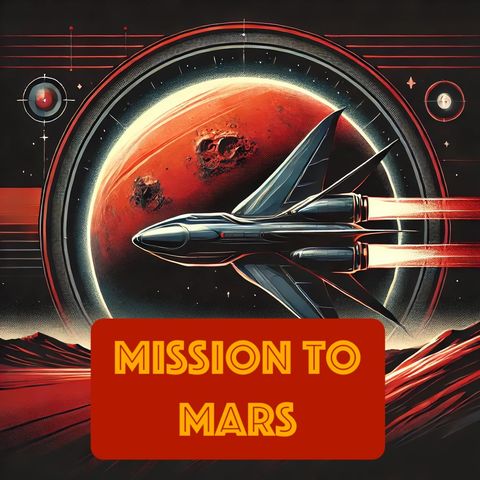"Overcoming Medication Challenges for a Sustainable Mars Mission: Scientists Explore Novel Solutions"

Descarga y escucha en cualquier lugar
Descarga tus episodios favoritos y disfrútalos, ¡dondequiera que estés! Regístrate o inicia sesión ahora para acceder a la escucha sin conexión.
"Overcoming Medication Challenges for a Sustainable Mars Mission: Scientists Explore Novel Solutions"
Esta transcripción es generada automáticamente. Ten en cuenta que no se garantiza una precisión absoluta.
Descripción
When planning for the first human mission to Mars, scientists face a myriad of challenges, one of which is the potentially reduced efficacy of medications due to the extended duration...
mostra másStudies have shown that the combination of microgravity, increased radiation levels, and other environmental factors aboard spacecraft can accelerate the degradation of pharmaceuticals. Such changes could weaken the effectiveness of essential medications, posing severe risks to astronaut health. On Earth, medications have expiry dates that are established based on stability testing under controlled conditions. However, the unique conditions of space travel complicate these predictions.
Research published in the journal npj Microgravity highlights how drugs stored on the International Space Station (ISS) have shown altered physical and chemical properties. In some instances, these drugs remained potent beyond their expiration dates, while in others, their potency decreased before reaching these dates. The variability underlines the necessity for more detailed investigation.
One possible solution to overcome this challenge is the development of new drug formulations that are specifically designed to withstand the conditions of space travel. Scientists are currently exploring various stabilizing agents and advanced packaging materials that could extend the life of medications during long-term missions.
Another innovative approach is the on-demand manufacturing of medications in space. This idea involves sending digital formulas rather than physical drugs, and utilizing a 3D printer equipped to synthesize medications from chemical building blocks. This technology could potentially provide a sustainable solution for long-duration space missions by creating drugs as needed, ensuring potency and reducing the cargo weight.
Further, exploring biotechnology applications, such as genetically engineered microbes that can produce pharmaceuticals, could also represent a transformative step toward self-sufficiency in space medicine.
NASA and other space agencies are highly invested in these research avenues, realizing that the success of future deep space exploration missions such as a crewed Mars mission hinges not just on the technology to get astronauts there, but also on ensuring their utmost safety and preparedness, including healthcare provisions. These studies and innovations pave the way toward ensuring astronauts remain healthy, making human exploration of Mars a viable and sustainable endeavor.
Información
| Autor | QP-4 |
| Organización | William Corbin |
| Página web | - |
| Etiquetas |
Copyright 2024 - Spreaker Inc. an iHeartMedia Company
